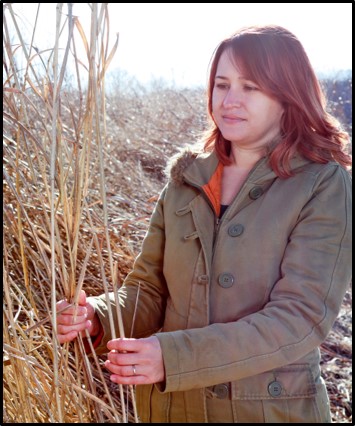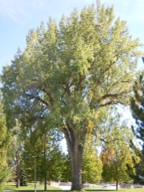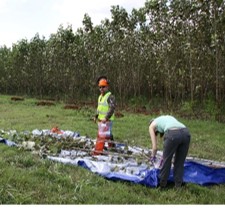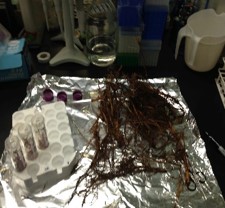Explore BiGG Data projects listed below offer research training in analysis of big data to fully understand ramifications of microbiomes, metabolomes, and genetics of One Health systems. By the end of the REEU, Fellows will have performed multiple bioinformatics tasks to answer One Health questions including, but not limited to, quality control/filtering, sequence alignment/assembly, protein and coding analysis, and basic statistics. Students will also receive training in communicating research in these complex systems to the other scientists and the general public.
2022 Research Opportunities
Project:
Dogwood is economically valuable to Tennessee as an ornamental and is ecologically important as a native tree. We hypothesized that discovering dogwood’s core microbiome may contribute to clues about stress resilience and fitness. In this study, we aimed to profile the dogwood microbiome using fungal ITS and prokaryotic 16S marker gene sequences sampled from root, stem, bark, and leaf niches. We found that dogwood’s core microbiome consists of 7 fungal and 26 prokaryotic taxa that have occupancy across all four niches. These 33 taxa were found in 5 – 94% of the total samples, but are found in at least one sample per niche (roots, stem, bark, and leaves). Thus, core taxa abundance varied widely.
Faculty Mentors:



Graduate Mentors:







REEU Scholars:
- Taylor Sawyer
- Isako Di Tomassi
Relevant Publications
- Poster: Getting to the Core: 33 Unique Constituents Identified as the Core Microbiome of Cornus Florida, Taylor Sawyer, Isako Di Tomassi, Beant Kapoor, Aaron Onufrak, Ryan Kuster, William Klingeman, Jennifer DeBruyn, Melissa Cregger, Meg Staton, Denita Hadziabdic
Project:
Amblyomma americanum, Amblyomma maculatum, and Dermacentor variabilis are the most commonly encountered ticks in the southeastern United States. These ticks are of medical and veterinary importance, as they can be vectors for human and animal-based pathogens. One pathogen of particular interest within this group is Rickettsia rickettsii, which can cause Rocky Mountain spotted fever (RMSF), a potentially life-threatening disease in humans that can be found in both A. americanum and D. variabilis. Previously, Trout Fryxell and DeBruyn (2016) reported microbial differences in A. americanum collected from different habitats. Our goal was to understand the bacterial communities within three tick species as they relate to the presence and absence of Rickettsia, and to investigate reasons for potential differences and/or inconsistencies. Using Illumina sequencing of 16S rRNA gene amplicons for each specimen, we identified ASVs classified as Rickettsia to perform statistical analyses relating richness and diversity to tick species, Rickettsia presence, habitat, and sex. We found that the presence of Rickettsia changed bacterial richness in the tick gut microbiome and that high variation in gut bacterial composition is driven by a number of factors, including tick species and habitat. Tick sex did not influence bacterial composition.
Faculty Mentors:


Graduate Mentor:





REEU Scholars:
- Sarah Smail
- Bethany Norris
Relevant Publications
- Poster: The Interaction between Species and Rickettsia Presence Influences Tick Gut Microbial Communities, Sarah Smail, Bethany Norris, Sophia Carmel Turner, Scott Emrich, and Rebecca Trout Fryxell
Project:
Populus trees are economically and ecologically important in the United States. The plant microbiome impacts plant health, and plant microbiomes can change over time. The core microbiome represents a set of taxa characteristic of the host and consistently present across samples. So, a healthy core microbiome contributes to plant health. In this study, we aimed to elucidate the root endosphere (RE) core microbiome, how the core microbiome changes over time between Populus species, and what biological functions the core taxa have. We characterized variation of the RE microbiome across four genotypes of two Populus species (Populus deltoides and P. trichocarpa) using 16S rRNA gene amplicon sequencing. We sampled the RE microbiome 8 times over two years and found that there is a subset of core taxa that are potentially beneficial to the plant. Core taxa that are shared between the two Populus species had similar abundance and occupancy. While the core microbiome is limited, it contains beneficial taxa that are found over multiple years, possibly providing support for its importance. We recommend further research on the functional significance of the core microbiome taxa
.
Faculty Mentors:


Graduate Mentors:






REEU Scholars:
- Emma Little
- Leah Spade
Relevant Publications
- Poster: Plant beneficial bacteria dominate a multispecies Populus root endosphere core microbiome, Emma Little, Leah Spade, Beant Kapoor, Ryan Kuster, Margaret Staton, Brandon Kristy, Melissa Cregger